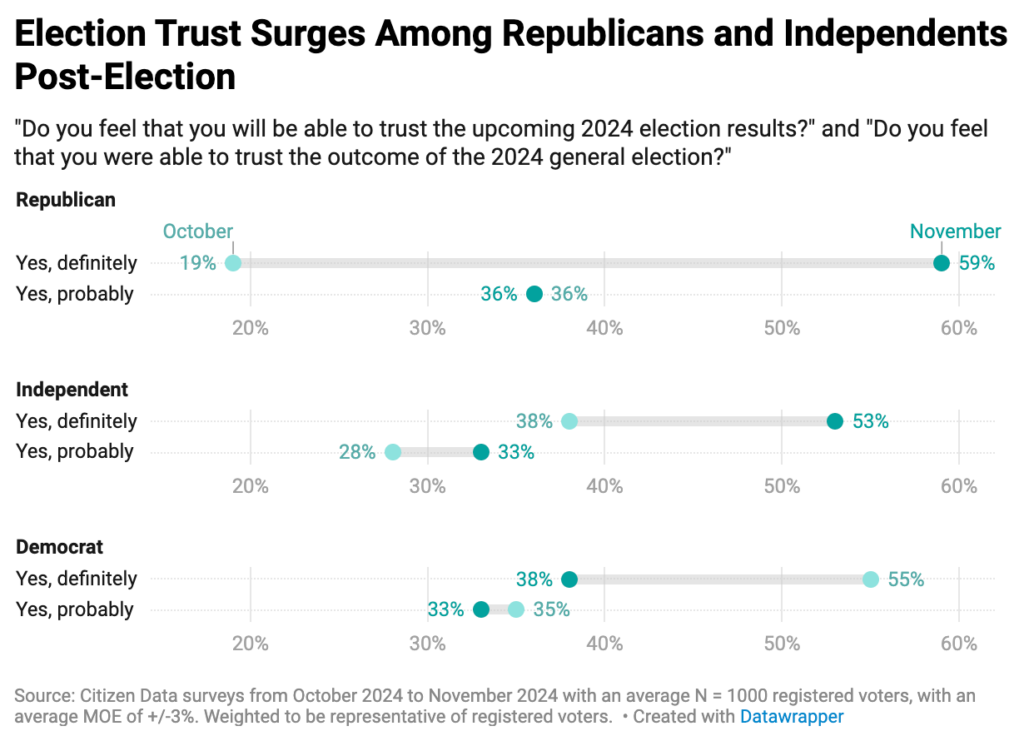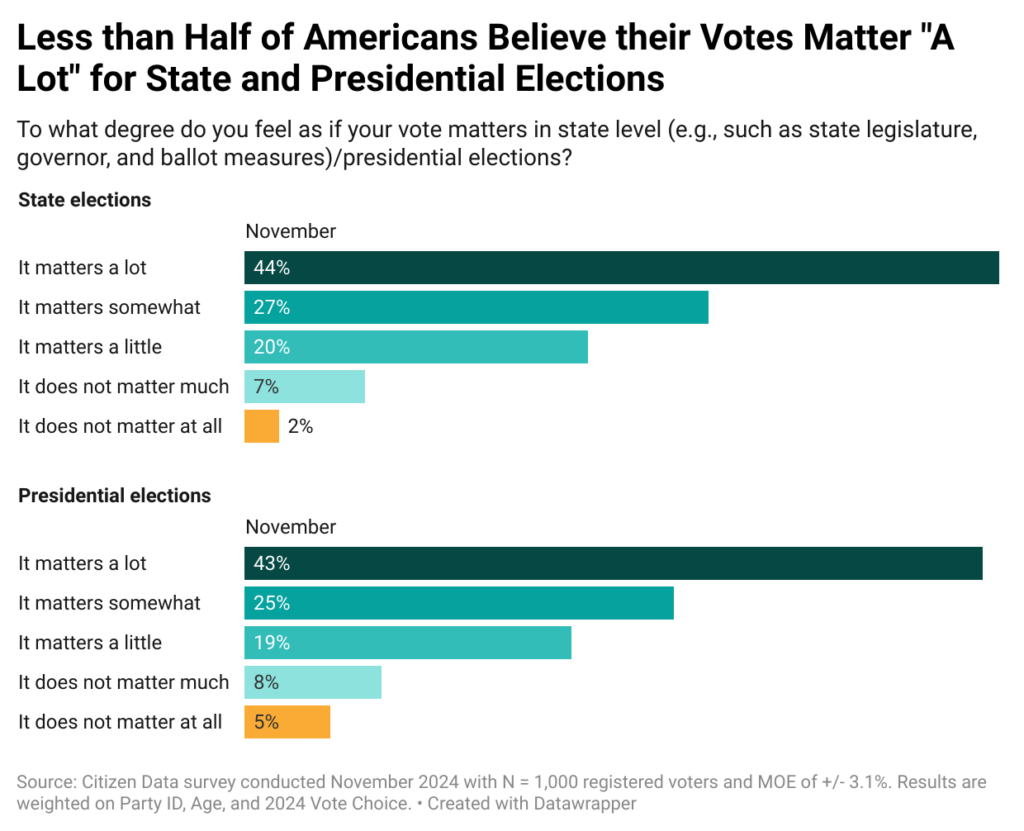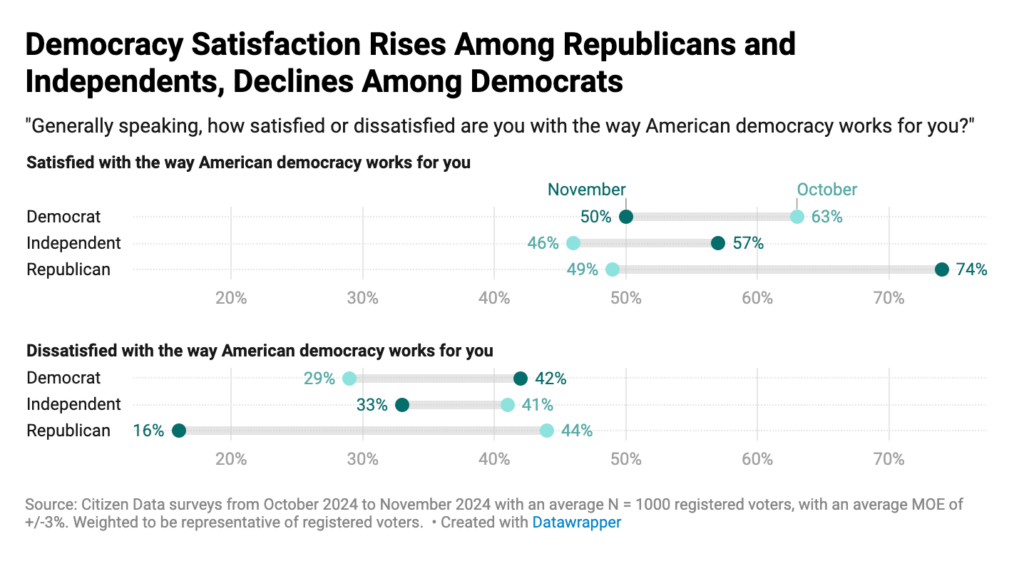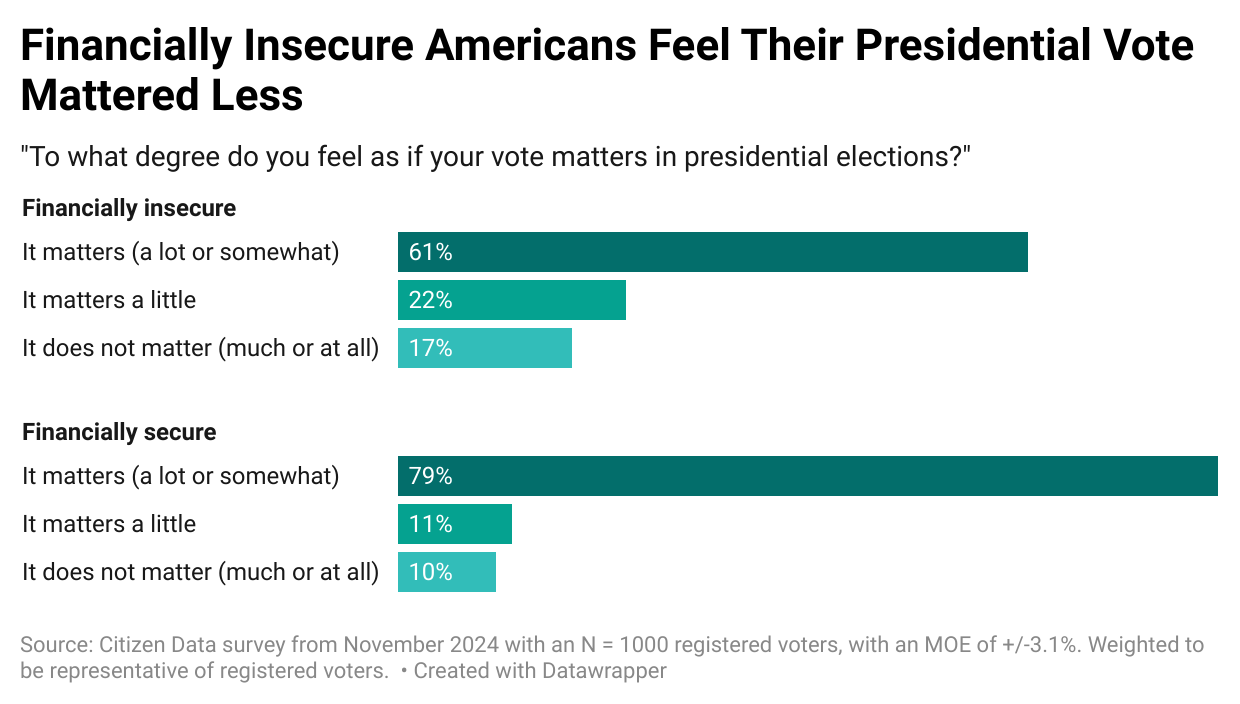Data for Democracy: Are Americans Hopeful Post 2024 Election? – December 2024 December 15, 2024
December 2024: Are Americans Hopeful Post 2024 Election?

By: Grayson Wormser
Welcome to another edition of Data for Democracy, our monthly newsletter where we explore the latest democracy data and insights from our monthly omnibus surveys. We hope everyone is in the holiday spirit and looking forward to spending some relaxing time with family in the coming weeks.
1. ‘Hope’ and ‘Relief’ Top Voter Feelings Post-Election

What You Need to Know: In the wake of this year’s general elections, we asked voters to share how they were feeling. Hope emerged as the top emotion, most frequently selected across all generations. However, a mix of other top emotions like fear, disappointment, and anxiety also paint a picture of overall disillusionment, particularly among young voters. Some other key generational differences:
- Younger voters (Gen Z and Millennials) are notably more likely to feel anxious, reflecting uncertainty about what lies ahead.
- Older voters (Gen X and Boomers) report higher levels of disappointment, though they are also slightly more likely to feel relieved.
We’ll continue to explore the reasons behind these feelings and how they evolve over the years ahead.
More Insights about the 2024 Election
2. Election Trust Rises, Shifting the Landscape

What You Need to Know: One of the most notable shifts we observed was in election trust. Trust reached a record high of 83% among voters, the highest we’ve recorded since tracking this metric. Perhaps not surprisingly, trust among Republicans and Independents increased significantly. Although election trust among Democrats dropped from 90% to 71% in the weeks following the election, this decline is modest compared to the significant decrease in trust observed among Republicans after the 2020 election. Yet, these trends underscore the strong link between presidential election outcomes and voter trust, highlighting the need to continue emphasizing the robust checks and balances that ensure fair elections, especially when someone’s preferred candidate doesn’t win.
3. Financial Security Impacts Levels of Election Trust

What You Need to Know: While much focus has been placed how trust levels have varied among partisans and age groups, less attention has been given to how a voter’s financial situation impacts their confidence in our elections. Building off of previous research we conducted alongside Urban Institute, we see that financially insecure Americans maintained less faith in election results throughout 2024, with an average of 61% before the election compared to 79% among other groups. However, the post-election rise in trust highlights that this group is open to change, particularly when elections are conducted smoothly. We’ll continue to explore whether these trends persist in future elections, especially in scenarios where trusted figures cast more doubt on the process.
4. Many Americans Felt Their Vote Had Little Impact in 2024

What You Need to Know: In our post-election survey, we looked at how confident Americans were about the impact of their vote at the presidential and state levels. At the presidential level, only 43% felt their vote mattered a lot, and 68% felt it mattered to some extent. We see similar trends for state-level elections. Interestingly, men were 12% more likely than women to think their vote mattered at the state level (50% vs. 38%). Still, about 1 in 3 of voters felt their vote didn’t matter, indicating that there’s work to be done to increase representativeness in our electoral system and boost civic engagement.
5. Democracy Satisfaction Shifts Post-Election

What You Need to Know: Democracy satisfaction levels among voters shifted notably before and after the election. Unsurprisingly, satisfaction increased significantly among Republicans (up 25%) and, to a lesser extent, Independents (up 11%). However, it decreased by 13% among Democrats. This post-election surge highlights how the electoral process influences perceptions of democracy and underscores the differing ways partisan groups interpret ‘democracy’. Over the coming months, we’ll be continuing to explore the ways in which voters define the term and how the pro-democracy community can better communicate around our priorities.
More on the State of Democracy Post-Election
Data-In-Action
Interested in getting your questions answered in our monthly omnibus survey? Learn more here and reach out to Grayson Wormser ([email protected]).
Sign up here to receive our latest insights and please reach out if you’d like to learn more about how we can work together to drive impact for your organization.
Share this report
How Financial Security Shaped Civic Engagement in 2024
Diving Deeper into the Economic Roots of Disparities in Political Participation
